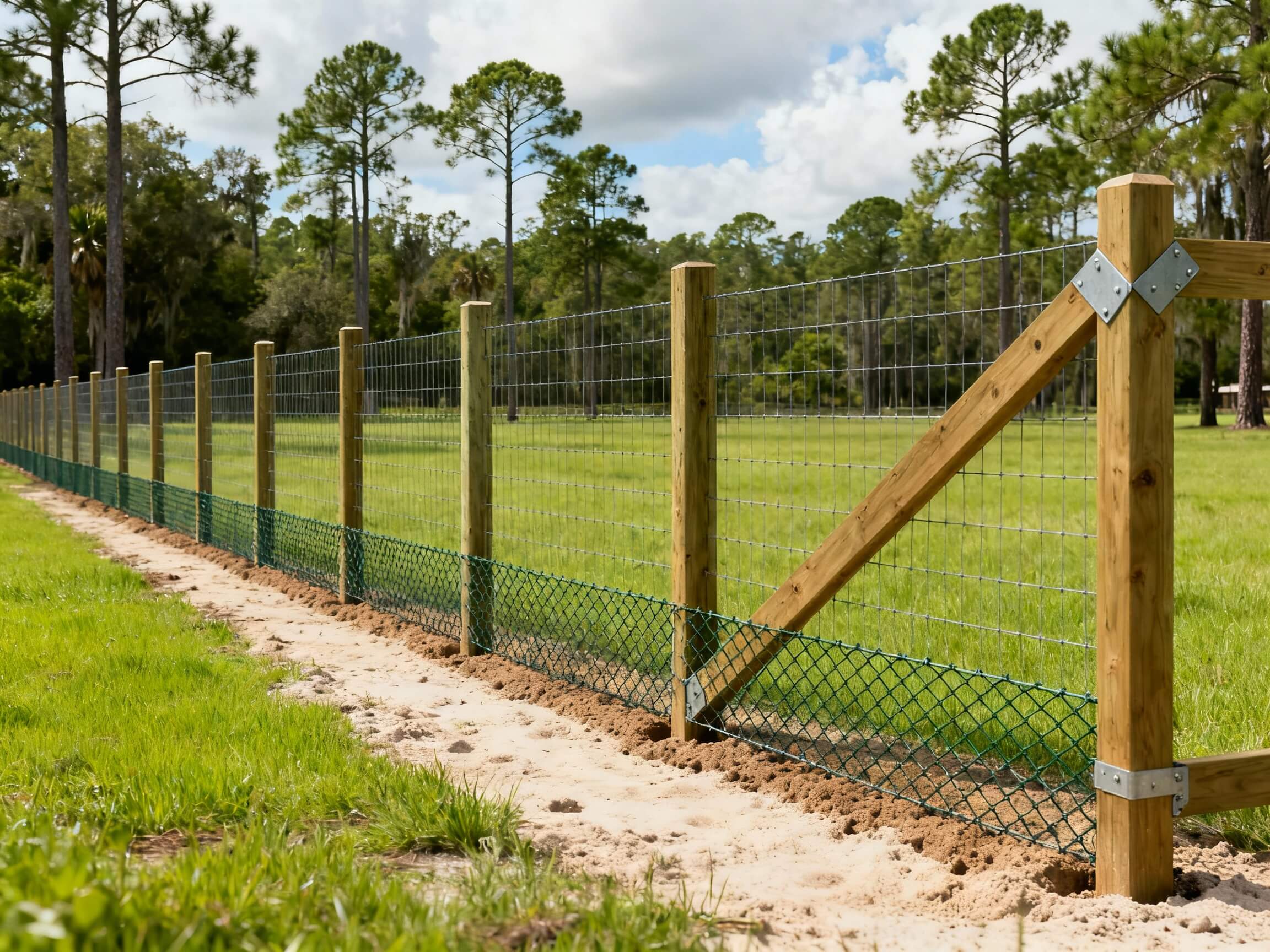
Escape Proof Goat Fencing: A Complete Guide
Why Goats Are Master Escape Artists
If you've ever owned goats, you know they are clever, persistent, and surprisingly athletic. Creating an Escape Proof Goat Fencing system begins with understanding the creative ways they challenge every barrier. Without a solid plan, your pasture can quickly become an open-door policy.
Common Goat Escape Tactics: Pushing, Climbing, and Digging
Goats are natural explorers and will exploit any weakness they find. They push on loose wires, climb over low sections, and dig their way under gaps. A good goat fence must be designed to withstand this constant testing, acting as a sturdy physical barrier that counters their intelligence and relentless determination.
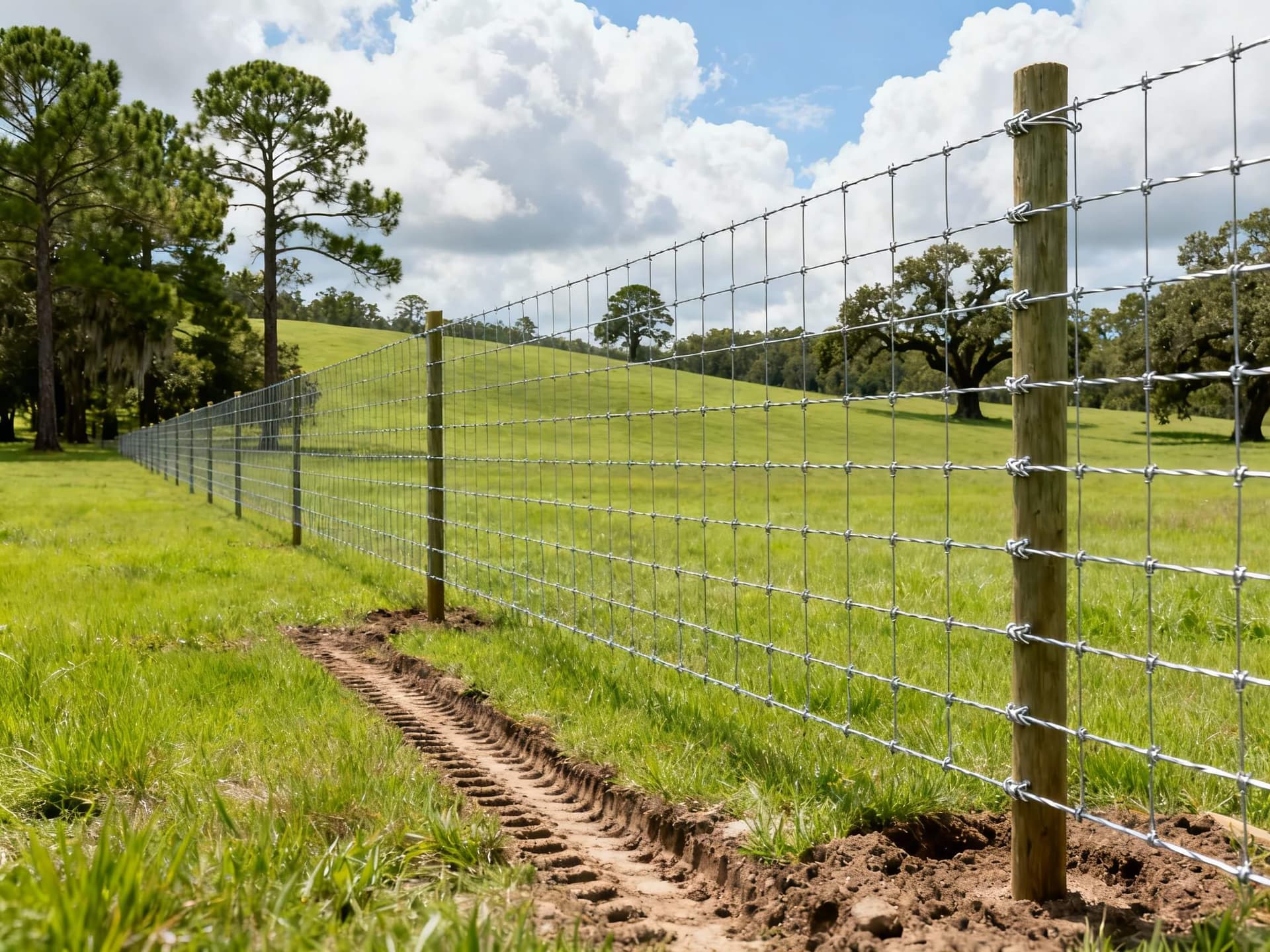
The Problem with Horns and Incorrect Mesh Size
One common but dangerous mistake is using fence mesh with the wrong size openings. A 6x6-inch square might seem adequate, but it's the perfect size for a curious goat to push its head through and get its horns stuck. This can lead to panic and serious injury, making mesh size a critical detail for a safe and effective fence Grazing with Leslie, 2025.
Choosing the Best Fence for Goats in the Southeast
The unique climate across the Florida Panhandle, South Alabama, and South Georgia demands materials that can handle humidity, rain, and sun. For goats, the choice of material is the difference between a secure herd and a constant headache.
Woven Wire: The Gold Standard for Containment
When it comes to the best fence for goats, woven wire is the undisputed champion. A fence standing at least 48 inches tall with small 4x4-inch mesh squares at the bottom prevents kids from slipping out and adult goats from pushing their heads through. In humid areas like Dothan and Mobile, we recommend Class 3 galvanized wire to resist rust and ensure a long lifespan. This material is strong, flexible, and built to last.
Learn more about our Livestock Fencing solutions.
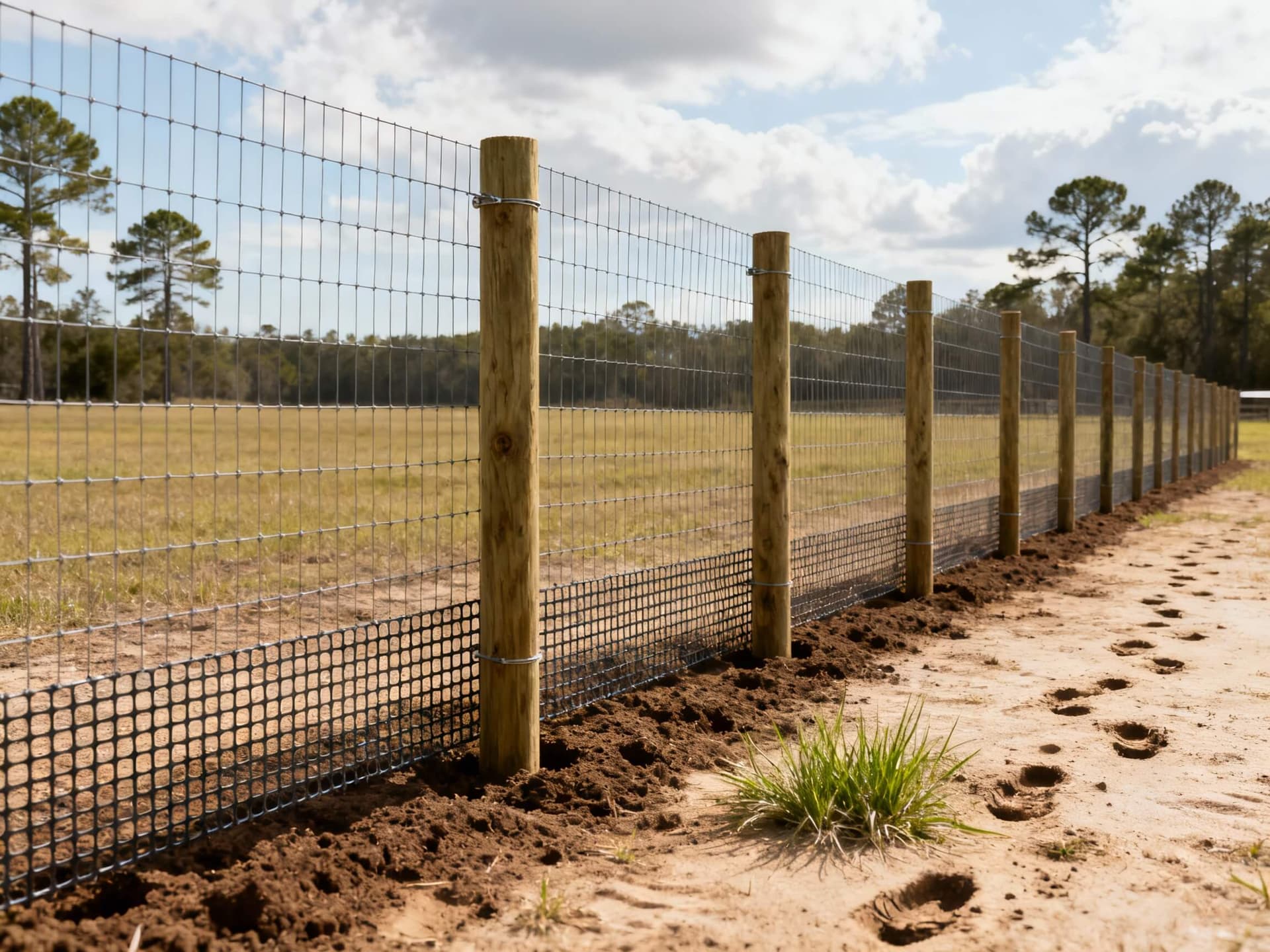
Electric & High-Tensile Wire: Effective Secondary Defenses
Electric fencing serves as an excellent psychological barrier but should not be used as the only line of defense for goats, whose thick coats can insulate them from weak shocks. For it to be effective, you need a powerful charger that delivers over 4,000 volts Zareba Systems, 2025. Similarly, a high-tensile wire fence can work but requires at least five to six strands spaced correctly to be a reliable goat proof fence.
What to Avoid: Why Barbed Wire Fails for Goats
Many people ask, "will barbed wire keep goats in?" The answer, according to agricultural experts, is a definitive no Oklahoma State University Extension, 2025. Goats can easily squeeze between or under the strands, and the barbs pose a serious risk of injury. It's simply not an effective or safe option for containing these nimble animals.
Critical Installation Steps for a Truly Goat-Proof Fence
Need Help?
Get expert fencing advice and free quotes. Our team is ready to help with your project.
Available Mon-Fri, 8am-6pm EST
The right materials are only half the battle. Professional installation (practical installation steps) ensures every component works together to create a fortress your goats can't breach. From the corners to the gates, every detail matters.
Building a Strong Foundation: Corner Bracing and Post Depth
The strength of your entire fence relies on its corners. Sturdy, deep-set H-braces are non-negotiable for maintaining tension and preventing sagging over time. In the sandy soil common to the Florida Panhandle, from Pensacola to Panama City, setting posts deep is crucial for creating a stable foundation that will last for decades.
Check out our tips on successful farm fence installation.
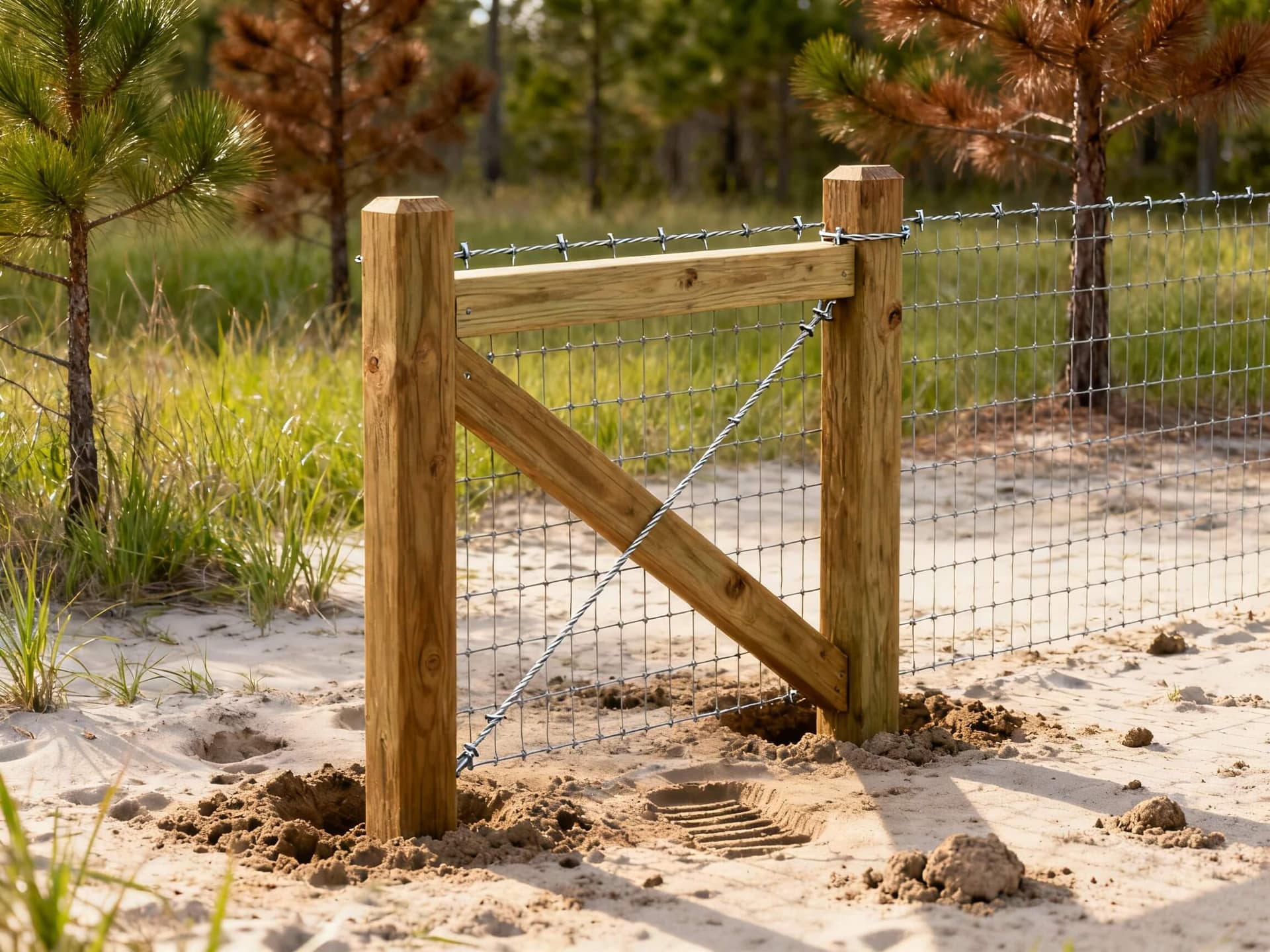
Fortifying the Bottom of the Fence Line
A determined goat will test the bottom of your fence for any opportunity to dig or squeeze under. We prevent this by either burying a "wire apron" a few inches into the ground or securing a board along the base of the fence line. This simple step fortifies a common weak point found in many DIY fence projects.
Gates: The Most Challenged Part of Your Goat Proof Fence
Your gate will be the area your goats test most often. A flimsy latch or a sagging frame is an open invitation for an escape. We install heavy-duty, "goat-proof" latches and solid gate frames that resist pushing and stay aligned, ensuring your most-used access point is also one of your most secure.
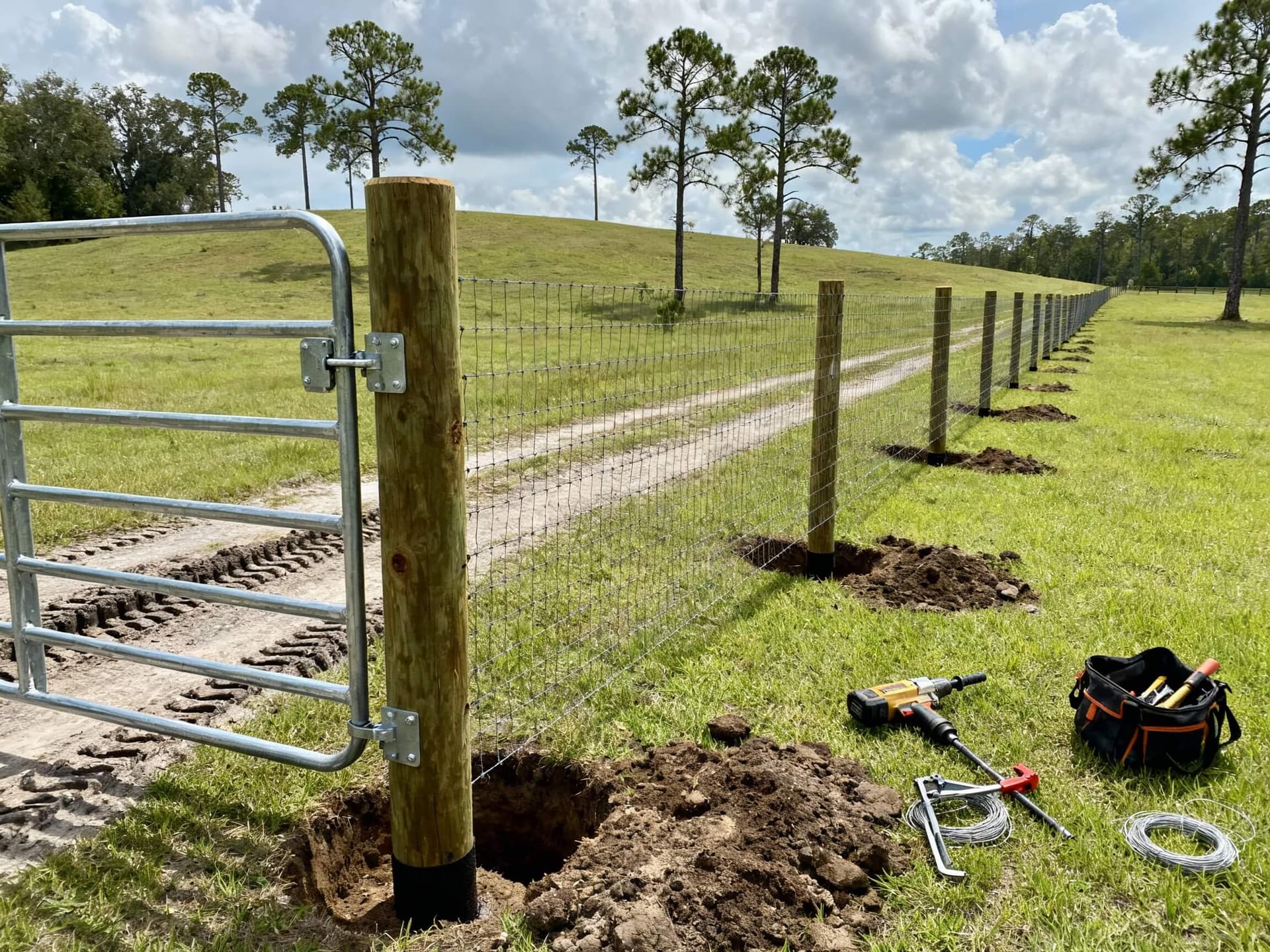
Professional Installation: An Investment in Peace of Mind
Building a fence that can truly contain goats is more complex than it looks. Small mistakes during installation can lead to big problems, including escaped livestock, costly repairs, and constant stress.
The Hidden Costs of DIY Fencing Mistakes
Common DIY errors like incorrect wire tensioning, weak corner posts, or choosing the wrong materials can cause a fence to fail prematurely. Investing in professional installation from the start saves you the time, money, and frustration of dealing with a fence that wasn't built to handle the unique challenges goats present.
Why Local Expertise Matters in South Georgia
A local fencing expert understands the specific challenges of your region. Whether it's the clay soil around Thomasville and Valdosta or local regulations in growing communities like Andalusia, we bring decades of hands-on ranching experience to every project. Bomann Fencing ensures your fence is built right the first time, giving you a reliable solution tailored to your land.
Frequently Asked Questions About Goat Fencing
What is the best escape proof goat fencing?
The best escape proof goat fencing is a woven wire fence that is at least 48 inches tall and features 4x4-inch mesh squares at the bottom. This design provides a strong physical barrier that's safe for both adult goats and young kids.
How do you make a goat-proof fence on hilly terrain?
On hilly or uneven land, the fence must follow the contour of the ground to eliminate gaps. This is done by expertly "racking" or stepping the fence panels and ensuring the bottom wire stays consistently close to the earth, leaving no room for goats to squeeze under.
What's the most durable type of goat fence for the Florida Panhandle?
For the humid, and sometimes salty, air in areas like Bonifay and across the Florida Panhandle, the most durable fence uses Class 3 galvanized woven wire. This is paired with properly treated wooden posts, like .60 CCA, to resist both rot and corrosion for a fence that lasts for decades.
Will barbed wire keep goats in?
No, a standard barbed wire fence is not a good or reliable option to keep goats in. They can easily slip through the wide gaps between wires, and the barbs create a significant risk of cuts and other injuries.
Get the Peace of Mind a Secure Fence Provides
To defeat even the most determined escape artist, your fence must be built with expertise. The right combination of woven wire, a fortified bottom line, and rock-solid corners will keep your herd safe and secure. A properly built fence gives you peace of mind, protects your valuable livestock, and saves you countless hours and dollars in the long run.
For a durable, escape-proof goat fence built with real ranching experience, call Bomann Fencing today. We offer free consultations across the Florida Panhandle, South Alabama, and South Georgia to help you build a fence that truly lasts.
Share this article
Related Posts
Need Help?
Get expert fencing advice and free quotes. Our team is ready to help with your project.
Available Mon-Fri, 8am-6pm EST
Related Posts
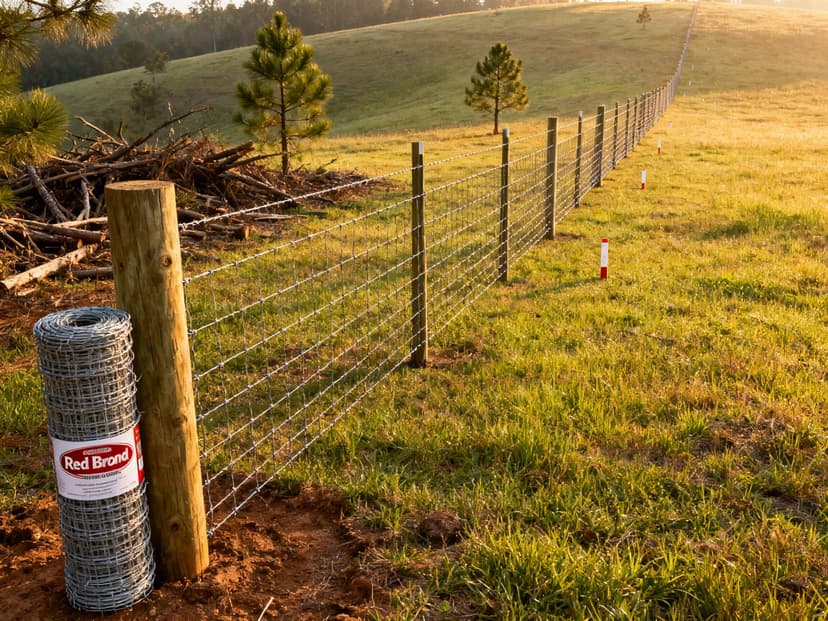
330 x 4 Fence Guide: Pro Installation Tips & Costs
Planning Your 330 x 4 Fence: Materials & Layout A successful livestock fence starts long before the first post is driven...
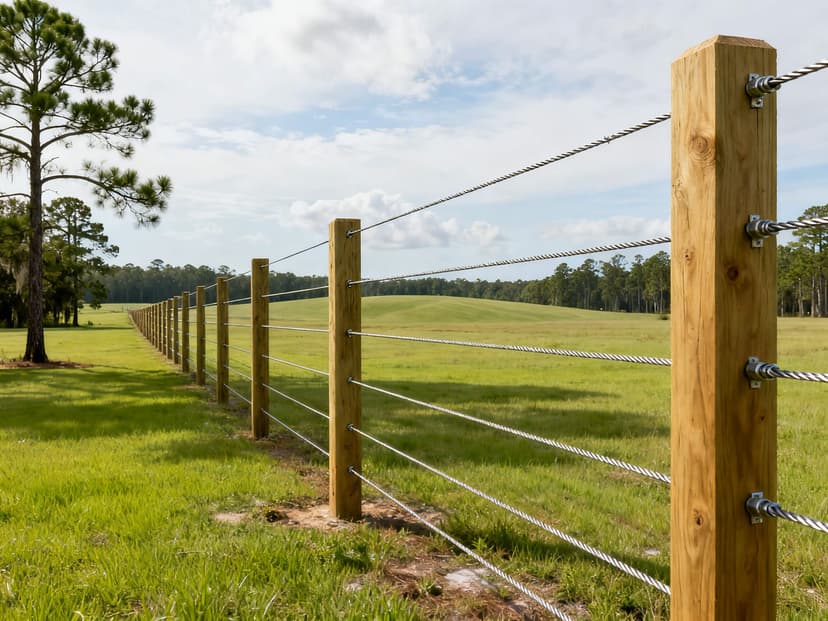
Cable Fence for Cattle: The SE Rancher's Durable Choice
Why Choose a Cable Fence System for Your SE Ranch? You need a strong, reliable fence to contain your cattle across large...
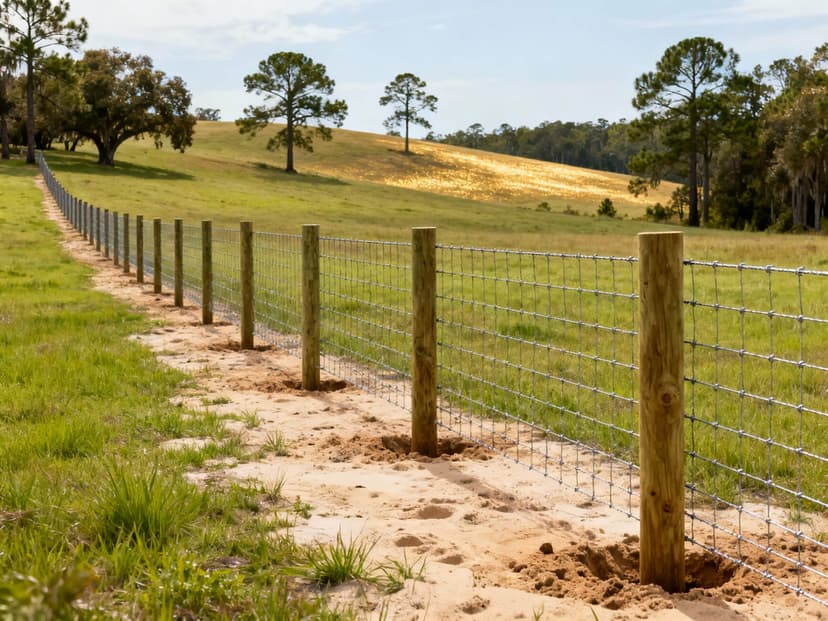
Cattle Fence Roll: The Complete Guide for Southeast Farms
Understanding Your Cattle Fence Roll Options When fencing a large operation, the type of wire you choose is a decision t...
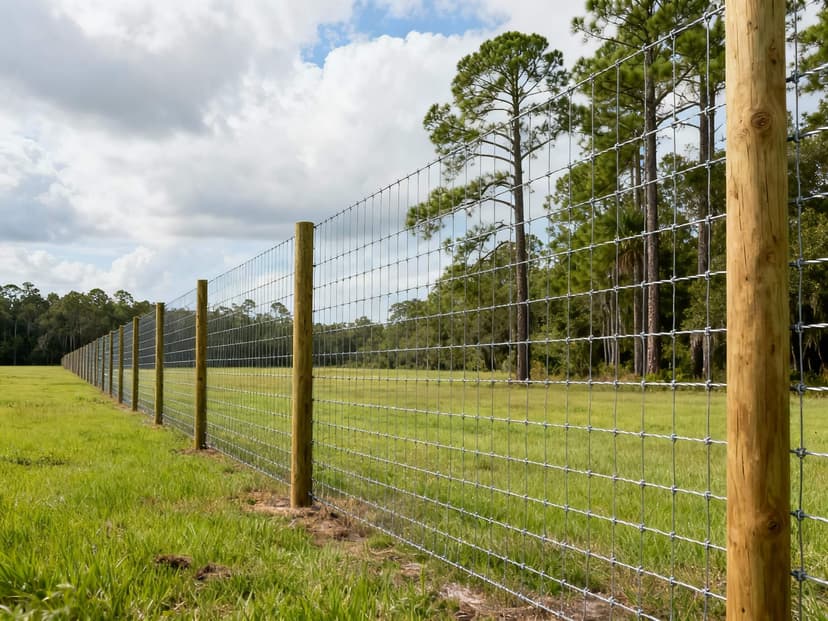
6 Proven Applications for a 6 Foot Field Fence
6 Proven Applications for a 6 Foot Field Fence As a farmer or rancher in the Southeast, you need a fencing solution that...
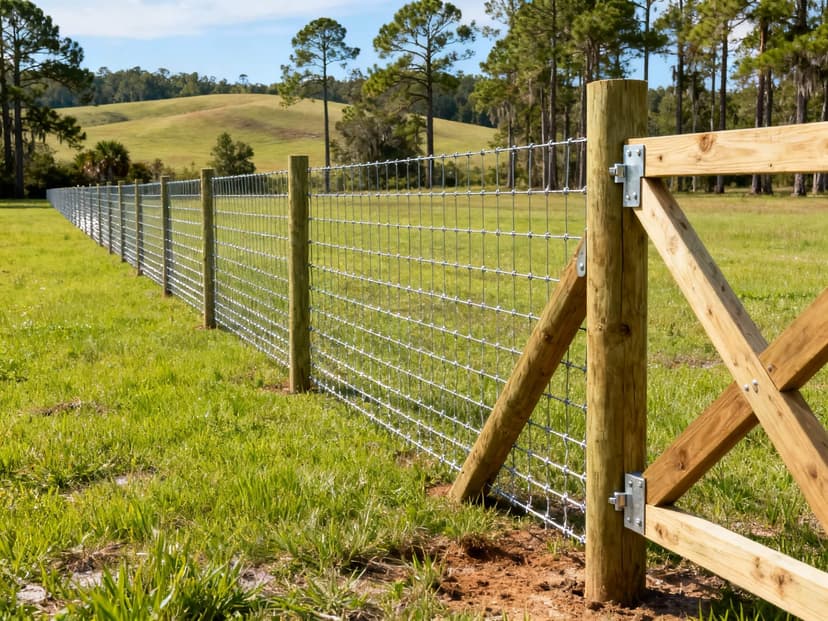
4 ft Field Fence: A Farmer's Guide to Cost & Setup
A Complete Guide to 4 ft Field Fence for Your Modern Farm For farmers and ranchers across the Florida Panhandle, South A...






